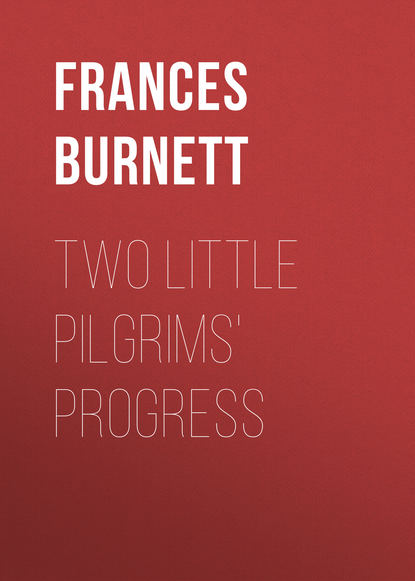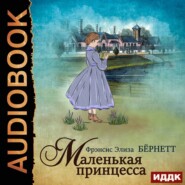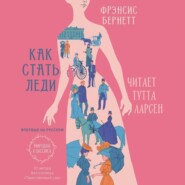По всем вопросам обращайтесь на: info@litportal.ru
(©) 2003-2024.
✖
Two Little Pilgrims' Progress
Настройки чтения
Размер шрифта
Высота строк
Поля
There were people enough before the office to give the ticket-agent plenty to do. Robin’s heart quickened a little as he passed by with the group of maturer people, but no one seemed to observe him particularly, and he returned to Meg with the precious bits of pasteboard held very tight in his hand.
Meg had waited alone in an unlighted corner, and when she saw him coming she came forward to meet him.
“Have you got them?” she said. “Did any one look at you or say anything?”
“Yes, I got them,” Robin answered. “And, I’ll tell you what, Meg, these people are nearly all going just where we are going, and they are so busy thinking about it, and attending to themselves, that they haven’t any time to watch any one else. That’s one good thing.”
“And the nearer we get to Chicago,” Meg said, “the more people there will be, and the more they will have to think of. And at that beautiful place, where there is so much to see, who will look at two children? I don’t believe we shall have any trouble at all.”
It really did not seem likely that they would, but it happened, by a curious coincidence, that within a very few minutes they saw somebody looking at them.
The train was not due for ten minutes, and there were a few people who, being too restless to sit in the waiting-rooms, walked up and down on the platform. Most of these were men, and there were two men who walked farther than the others did, and so neared the place where Robin and Meg stood in the shadow. One was a young man, and seemed to be listening to instructions his companion, who was older, was giving him, in a rapid, abrupt sort of voice. This companion, who might have been his employer, was a man of middle age. He was robust of figure and had a clean-cut face, with a certain effect of strong good looks. It was, perhaps, rather a hard face, but it was a face one would look at more than once; and he too, oddly enough, had a square jaw and straight black brows. But it was his voice which first attracted Robin and Meg as he neared them, talking.
“It’s the man in the buggy,” whispered Robin. “Don’t you know his voice again?” and they watched him with deep interest.
He passed them once, without seeming to see them at all. He was explaining something to his companion. The second time he drew near he chanced to look up, and his eye fell on them. It did not rest on them more than a second, and he went on speaking. The next time he neared their part of the platform he turned his glance towards them, as they stood close together. It was as if involuntarily he glanced to see if they were still where they had been before.
“A pair of children,” they heard him say, as if the fleeting impression of their presence arrested his train of thought for a second. “Look as if no one was with them.”
He merely made the comment in passing, and returned to his subject the next second; but Meg and Robin heard him, and drew farther back into the shadow.
But it was not necessary to stand there much longer. They heard a familiar sound in the distance, the shrill cry of the incoming train – the beloved giant who was to carry them to fairyland; the people began to flock out of the waiting-rooms with packages and valises and umbrellas in hand; the porters suddenly became alert, and hurried about attending to their duties; the delightful roar drew nearer and louder, and began to shake the earth; it grew louder still, a bell began to make a cheerful tolling, people were rushing to and fro; Meg and Robin rushed with them, and the train was panting in the dépôt.
It was even more thrilling than the children had thought it would be. They had travelled so very little, and did not know exactly where to go. It might not be the right train even. They did not know how long it would wait. It might rush away again before they could get on. People seemed in such a hurry and so excited. As they hurried along they found themselves being pushed and jostled, before the steps of one of the cars a conductor stood, whom people kept showing tickets to. There were several persons round him when Robin and Meg reached the place where he stood. People kept asking him things, and sometimes he passed them on, and sometimes let them go into his car.
“Is this the train to Chicago?” said Robin, breathlessly.
But he was so much less than the other people, and the man was so busy, he did not hear him.
Robin tried to get nearer.
“Is this the Chicago train, sir?” he said, a little louder.
He had had to press by a man whom he had been too excited to see, and the man looked down, and spoke to him.
“Chicago train?” he said, in a voice which was abrupt, without being ill-natured. “Yes, you’re all right. Got your sleeping tickets?”
Robin looked up at him quickly. He knew the voice, and was vaguely glad to hear it. He and Meg had never been in a sleeping-car in their lives, and he did not quite understand. He held out his tickets.
“We are going to sleep on the train,” he said; “but we have nothing but these.”
“Next car but two, then,” he said; “and you’d better hurry.”
And when both voices thanked him at once, and the two caught each other’s hands and ran towards their car, he looked after them and laughed.
“I’m blessed if they’re not by themselves,” he said, watching them as they scrambled up the steps. “And they’re going to the Fair, I’ll bet a dollar. That’s Young America, and no mistake!”
IX
The car was quite crowded. There were more people than themselves who were going to the Fair and were obliged to economize. When the children entered, and looked about them in the dim light, they thought at first that all the seats were full. People seemed to be huddled up asleep or sitting up awake in all of them. Everybody had been trying to get to sleep, at least, and the twins found themselves making their whispers even lower than before.
“I think there is a seat empty just behind that very fat lady,” Meg whispered.
It was at the end of the car, and they went to it, and found she was right. They took possession of it quietly, putting their satchel under the seat.
“It seems so still,” said Meg, “I feel as if I was in somebody’s bedroom. The sound of the wheels makes it seem all the quieter. It’s as if we were shut in by the noise.”
“We mustn’t talk,” said Robin, “or we shall waken the people. Can you go to sleep, Meg?”
“I can if I can stop thinking,” she answered, with a joyful sigh. “I’m very tired; but the wheels keep saying, over and over again, ‘We’re going – we’re going – we’re going.’ It’s just as if they were talking. Don’t you hear them?”
“Yes, I do. Do they say that to you, too? But we mustn’t listen,” Robin whispered back. “If we do we shall not go to sleep, and then we shall be too tired to walk about. Let’s put our heads down, and shut our eyes, Meg.”
“Well, let’s,” said Meg.
She curled herself up on the seat, and put her head into the corner.
“If you lean against me, Rob,” she said, “it will be softer. We can take turns.”
They changed position a little two or three times, but they were worn out with the day’s work, and their walk, and the excitement, and the motion of the train seemed like a sort of rocking which lulled them. Gradually their muscles relaxed and they settled down, though, after they had done so, Meg spoke once, drowsily.
“Rob,” she said, “did you see that was our man?”
“Yes,” answered Rob, very sleepily indeed, “and he looked as if he knew us.”
* * * * * * * *
If they had been less young, or if they had been less tired, they might have found themselves awake a good many times during the night. But they were such children, and, now that the great step was taken, were so happy, that the soft, deep sleepiness of youth descended upon and overpowered them. Once or twice during the night they stirred, wakened for a dreamy, blissful moment by some sound of a door shutting, or a conductor passing through. But they were only conscious of a delicious sense of strangeness, of the stillness of the car full of sleepers, of the half-realized delight of feeling themselves carried along through the unknown country, and of the rattle of the wheels, which never ceased saying rhythmically, “We’re going – we’re going – we’re going!”
Ah! what a night of dreams and new, vague sensations, to be remembered always! Ah! that heavenly sense of joy to come, and adventure, and young hopefulness and imagining! Were there many others carried towards the City Beautiful that night who bore with them the same rapture of longing and belief; who saw with such innocent clearness only the fair and splendid thought which had created it, and were so innocently blind to any shadow of sordidness or mere worldly interest touching its white walls? And after the passing of this wonderful night, what a wakening in the morning, at the first rosiness of dawn, when all the other occupants of the car were still asleep, or restlessly trying to be at ease!
It was as if they both wakened at almost the same moment. The first shaft of early sunlight streaming in the window touched Meg’s eyelids, and she slowly opened them. Then something joyous and exultant rushed in upon her heart, and she sat upright. And Robin sat up too, and they looked at each other.
“It’s the Day, Meg!” said Robin. “It’s the Day!” Meg caught her breath.
“And nothing has stopped us,” she said. “And we are getting nearer and nearer. Rob, let us look out of the window.”
For a while they looked out, pressed close together, and full of such ecstasy of delight in the strangeness of everything that at first they did not exchange even their whispers.
It is rather a good thing to see – rather well worth while even for a man or woman – the day waking, and waking the world, as one is borne swiftly through the morning light, and one looks out of a car window. What it was to these two children only those who remember the children who were themselves long ago can realize at all. The country went hurrying past them, making curious sudden revelations and giving half-hints in its haste; prairie and field, farmhouse and wood and village all wore a strange, exciting, vanishing aspect.
“It seems,” Meg said, “as if it was all going somewhere – in a great hurry – as if it couldn’t wait to let us see it.”
“But we are the ones that are going,” said Rob. “Listen to the wheels – and we shall soon be there.”
After a while the people who were asleep began to stir and stretch themselves. Some of them looked cross, and some looked tired. The very fat lady in the seat before them had a coal smut on her nose.
“Robin,” said Meg, after looking at her seriously a moment, “let’s get our towel out of the bag and wet it and wash our faces.”

















